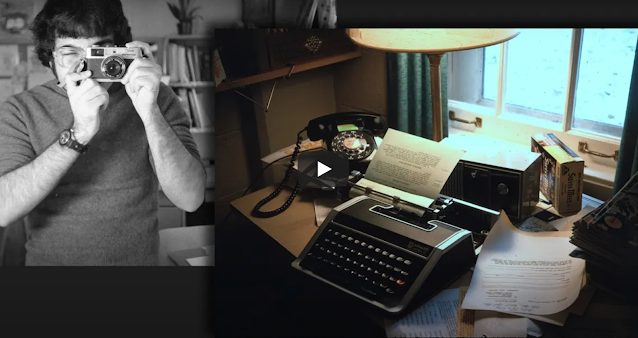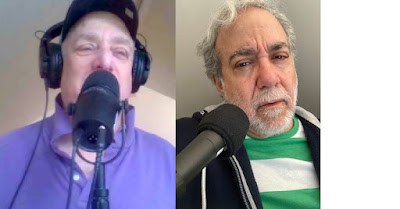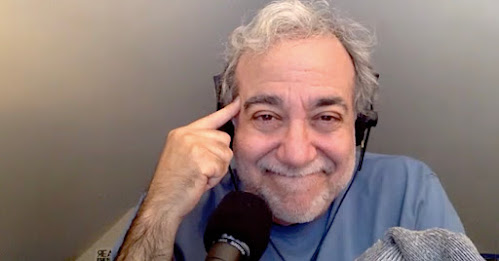March 1985 was a milestone: The month I got my first computer.
Inspired after seeing an original 1984 128K Macintosh at my friend Mike Gold’s Evanston home, I took advantage of Apple’s innovative “Test Drive a Mac” program—under which computer shops such as Oak Park’s BIES* Systems (an advertiser with my then-employer, WXRT-FM) invited you to take a Mac home for a brief trial run.
That trial run was just long enough for me to fall in love with a device so underpowered that it wouldn’t do a thing until you inserted a 400K floppy disk containing the operating system and (if you were miserly with your storage) an application or three.
I considered some of the other non-graphic-user-interface computers on the market in 1984, but the words of BIES’ Dave Leonard stick with me today: “If you buy a Macintosh, you’re buying the future.”
And, indeed, I bought myself a fine future that month—for the equivalent of about $7,000 in 2025 money (plus another inflation-adjusted $2,000 for the dot-matrix Imagewriter printer.)
1985 being my final year of non-parenthood, I took a whole week of vacation just to play with the thing—learning the niceties of computer keyboards vs. traditional typewriters; the art of find-and-replace (Was it case-sensitive? Did spaces and punctuation count?) and copy-and-paste (Did it include a trailing space or not?); how to change fonts and styles; and how to type extended characters like ellipses, em dashes and curly quotes. Also: The astonishing MacPaint.
Within weeks, I was using that Mac to compose the first of a memorable series of columns for Gold’s First Comics. And within a year and a half, I persuaded my colleagues at WXRT News to move from IBM Selectric typewriters to a Mac. The ability to fix mistakes without having to backspace and X out long passages, and to rearrange paragraphs without relying on scissors and transparent adhesive tape, was transformative. Compare the mess of my typewritten 1986 scripts …
Meanwhile, the children began arriving. Some of their earliest memories—or at least some of my earliest memories of them—have them on my lap, watching letters and pictures appear on that tiny, 9-inch black-and-white screen. The first words they could read included “Save” and “Quit.” (And, later, two of our three sons would take jobs out of college working for the Apple Store; another majored in computer science.)
So essential did computers become for me that, when I left ’XRT to join fledgling “smooth jazz” station WNUA-FM as its news director in 1989 , I insisted the newsroom get a Mac.
And the rise of personal computers—and, in the years that followed, the World Wide Web—became a recurring focus for my work at WNUA, where I interviewed …
■ …photographer Rick Smolan about his book 24 Hours in Cyberspace …
■ … author William Gibson, who coined the phrase cyberspace …
■ … humorist Dave Barry, who shared “computer-buying advice for cyberstuds” …
■ … tech reporter Kara Swisher, then documenting The War for the Web …
■ … journalists Michelle Slatalla and Joshua Quittner, who’d tracked The Gang That Ruled Cyberspace …
■ … and interim Apple CEO Gil Amelio, considered by some “the man who really saved Apple.”
Not to mention the station’s groundbreaking embrace of …
■ … digital audio editing, where I developed innovative production techniques I’d share beginning in 2013 with our team at the pioneering Rivet news and podcast production firm …
■ … and email, via which WNUA may have been the first Chicago station to offer listeners news alerts.
All of that set the stage for what may have been the biggest pivot of my career: When WNUA eliminated its news department in 1998, I fully embraced computers and the web, teaching myself HTML before joining the Chicago Tribune to launch its email newsletters and help program its pioneering breaking-news website.
Would any of that have happened had I not bought that first (of many, many to follow) Mac?
* Business, Industrial, Educational and Scientific.
(Photos: Promo materials from that first test-drive and purchase; and the box still containing that 128K Mac.)









 This hasn’t happened much in my career, most of which I’ve devoted to
This hasn’t happened much in my career, most of which I’ve devoted to 
